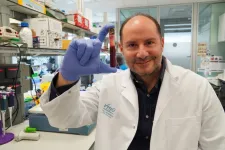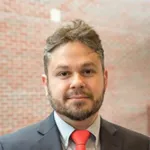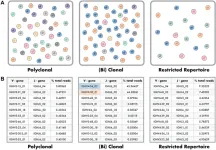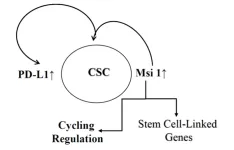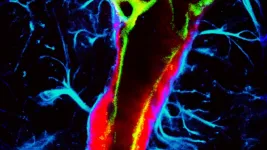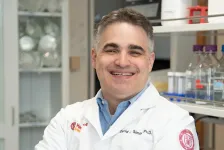Chan Zuckerberg Initiative funds COMBINEDBrain to fast track research for rare neurological disorders
COMBINEDBrain receives unexpected grant from Chan Zuckerberg
2023-05-16
(Press-News.org)
COMBINEDBrain’s Founder and Director, Dr. Terry Jo Bichell, understands the power of collaboration. In her years as a neuroscientist, advocate, and rare patient parent, she has witnessed the field of neurodevelopment transform from a broad focus on autism or intellectual disability, to an era based on rare genetic disorders. When new disorders are identified, Patient Advocacy Organizations spring up, led by passionate parents with the drive and determination to cure their children. Some of these organizations represent as many as 10,000 patients, some as few as 10. No matter their size, each organization must follow a similar path to a cure; a path which includes diagnosing patients, running natural history studies, identifying non-human models, and conducting disease burden studies. This path is long and arduous, especially for families who are busy caring for their children with complex medical needs while they fight the clock to cure them. Dr. Bichell formed COMBINEDBrain to help these non-profit organizations, envisioning it as a pre-competitive alliance between advocacy foundations, researchers, clinicians, and industry to fast-track the process for all stakeholders.
COMBINEDBrain provides the organizational structure for patients, academia and industry to come together to develop treatments for those suffering from rare genetic neurodevelopmental disorders. Industry brings a deep expertise, dedicated work force and funding to power the flywheel of innovation, while clinicians and scientists bring basic knowledge, and patients contribute lived experience. What started with 20 original advocacy groups in 2019 has now grown to over 64. Like all small nonprofits, finding a steady source of funding for operating expenses has been a struggle. COMBINEDBrain launched with a donation from the Bichell Family and has since received several grants. Determined not to compete with the advocacy groups that COMBINEDBrain serves, the foundation does not solicit donations from individuals, relying on membership dues, income from projects, and grants.
Late in 2022, The COMBINEDBrain team received a grant from the Chan Zuckerberg Initiative.
“This grant was a godsend. These funds enabled us to strengthen our core operations by hiring an accountant, an additional post-doctoral scientist, and more administrative help. This new staff is making it possible for us to launch new biomarker projects and invite more patient advocacy groups into the fold. CZI is helping patients help themselves by strengthening organizations like ours to do rigorous meaningful work towards curing rare diseases.”- Dr. Terry Jo Bichell, COMBINEDBrain Founder and Executive Director.
The Chan Zuckerberg Initiative was founded in 2015 to help solve some of society’s toughest challenges — from eradicating disease and improving education, to addressing the needs of our local communities. Their mission is to build a more inclusive, just, and healthy future for everyone. Part of the Chan Zuckerberg Initiative is the Rare As One Project. Rare As One recognizes that “rare” is anything but rare. As many as 10,000 rare diseases affect 300 million people globally. The vast majority are not well understood, and less than 5 percent have approved treatments. Yet worldwide, patients are meeting these challenges head-on. The Rare As One Project is committed to uniting these communities in their quest for cures. It seemed that the two organizations have the same mission- pooling resources and uniting communities.
"We are excited to support COMBINEDBrain in its collaborative, patient-driven efforts to accelerate the path to clinical treatments for people with rare neurodevelopmental disorders by pooling efforts, studies and data." - Heidi Bjornson-Pennell, Rare As One Senior Program Manager
COMBINEDBrain is proud to be supported by CZI’s Rare As One Project.
Patient Advocacy Members of COMBINEDBrain:
ADNP Foundation
Association for Creatine Deficiencies
ASXL Rare Research Endowment Foundation
CACNA1A Foundation
CACNA1H Alliance
CASK Gene Foundation
CHAMP1 Research Foundation
CSNK2A1 Foundation
CSNK2B Foundation
CTNNB1 Connect and Cure
CureGRIN Foundation
Cure KCNH1 Foundation
Cure Mito Foundation
CureSHANK
Cure VCP Disease
DLG4 Research Fund
DYRK1A Syndrome International Association
FAM177A1 Research Fund
FamilieSCN2A Foundation
Foundation for Angelman Syndrome Therapeutics (FAST)
Foundation for USP7 Related Diseases
FOXG1 Research Foundation
FRAXA Research Foundation
Global Foundation for Peroxisomal Disorders
Glut1 Deficiency Foundation
GRIN2B Foundation
HOPE For Harvey Foundation
IDefine
iDREAM For A Cure
International SCN8A Alliance
Kabuki Syndrome Foundation
The KCNC1 Foundation
KCNQ2 Cure Alliance
KCNT1 Foundation
KDVS Foundation
KIF1A.ORG
Malan Syndrome Foundation
MED13L
NR2F1 Foundation
Ogden CARES
PACS1 Syndrome Research Foundation
PBD Project
Pitt Hopkins Research Foundation
P.R.I.S.M.S (Parents and Researchers Interested in Smith-Magenis Syndrome)
Project Alive
Project 8p
Rory Belle Foundation (NARS1)
SATB2 Gene Foundation
Scarlett’s GABRA1 Village
Schinzel-Giedion Syndrome Foundation
SETBP1 Society
SHANK2 Foundation
SHINE Syndrome Foundation
Shwachman Diamond Syndrome Alliance
SLC6A1 Connect
The Stiff Person Syndrome Research Foundation
STXBP1 Foundation
SynGAP Research Fund (SRF)
Tatton Brown Rahman Syndrome Community
TESS Research Foundation
Yellow Brick Road Project
WWOX END
[Attachments] See images for this press release:
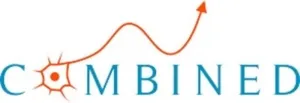
ELSE PRESS RELEASES FROM THIS DATE:
2023-05-16
Liquid biopsy is increasingly stepping up as a non-invasive approach in detecting and tracking circulating tumor DNA (ctDNA) in blood and providing crucial insights into the dynamics of cancer evolution and intra-tumor heterogeneity as drivers of cancer drug resistance.
One main limitation of liquid biopsy to-date is the low sensitivity of current approaches in tumor types that do not shed enough DNA into the bloodstream, including pancreatic cancer.
Co-led by VHIO’s Rodrigo A. Toledo, a study published in Genome Medicine (1) reports on the development of a novel ctDNA-based approach, Aneuploidy in Circulating Tumor DNA ...
2023-05-16
Researchers at Rutgers University have found a major flaw in the way that algorithms designed to detect "fake news" evaluate the credibility of online news stories.
Most of these algorithms rely on a credibility score for the "source" of the article, rather than assessing the credibility of each individual article, the researchers said.
"It is not the case that all news articles published by sources labeled 'credible' (e.g., The New York Times) are accurate, nor is it the case that every article published by sources labeled 'noncredible' publications are 'fake news,'" ...
2023-05-16
Spooked by volatile reports from the Silicon Valley Bank in early March, many customers panicked and withdrew their money, creating the largest bank failure since the 2007-2008 financial crisis. The problem — investors and customers lost confidence in the bank, proving the perception of a banks’ reliability can significantly impact its success.
Investors tend to respond negatively to volatility in firms’ performance. To mitigate investors’ concerns, when some banks receive extremely high income, they occasionally delay reporting that amount until a later date when the income ...
2023-05-16
“[...] we have developed a fully automated calling algorithm for determining B and T cell clonality from NGS [next-generation sequencing] data, with greater sensitivity than previously developed models.”
BUFFALO, NY- May 16, 2023 – A new research paper was published in Oncotarget's Volume 14 on May 12, 2023, entitled, “Development and implementation of an automated and highly accurate reporting process for NGS-based clonality testing.”
B and T cells undergo random recombination of the VH/DH/JH portions of the immunoglobulin loci (B cell) and T-cell receptors before becoming ...
2023-05-16
“This study now links Msi 1 to PD-L1.”
BUFFALO, NY- May 16, 2023 – A new research paper was published in Aging (listed by MEDLINE/PubMed as "Aging (Albany NY)" and "Aging-US" by Web of Science) Volume 15, Issue 9, entitled, “Increased expression of musashi 1 on breast cancer cells has implication to understand dormancy and survival in bone marrow.”
Breast cancer (BC) stem cells (CSCs) resist treatment and can exist as dormant cells in tissues such as the bone marrow (BM). Years before clinical diagnosis, BC cells (BCCs) could migrate from the primary site where the BM niche ...
2023-05-16
Irvine, Calif., May 16, 2023 — The MGAT5 glycosylation enzyme plays a crucial role in brain development, according to a study by University of California, Irvine researchers, a discovery that may contribute to new therapeutic purposes for neural stem cells.
Neurons, astrocytes and oligodendrocytes are the final mature cells of the brain and spinal cord formed by neural stem cells. Each has distinct and key functions. Neurons transmit signals, astrocytes help modify those signals, and oligodendrocytes ...
2023-05-16
Like the lymphatic system in the body, the glymphatic system in the brain clears metabolic waste and distributes nutrients and other important compounds. Impairments in this system may contribute to brain diseases, such as neurodegenerative diseases and stroke.
A team of researchers in the McKelvey School of Engineering at Washington University in St. Louis has found a noninvasive and nonpharmaceutical method to influence glymphatic transport using focused ultrasound, opening the opportunity to use the method to further study brain diseases and brain function. Results of the work are published in the Proceedings ...
2023-05-16
The prize, now in its 10th year, is given annually to at least six early-career scientists based in the New York City area by The Pershing Square Sohn Cancer Research Alliance. Prizes are awarded to scientists who are pursuing innovative cancer research and taking risks that might preclude them from traditional funding. Winners receive $250,000 a year for up to three years and access to networking opportunities and an annual retreat with past winners.
For Dr. Simon, the prize will allow him to apply his knowledge as a neuroscientist to cancer research. “I'm not a traditional cancer biologist,” said Dr. ...
2023-05-16
A team from the University of Michigan Rogel Cancer Center and School of Dentistry, led by Yu Leo Lei, D.D.S., Ph.D., have identified a mechanism in mice for how obesity affects some oral cancers’ ability to escape from the immune system.
This study, published in Cell Reports, found that obesity helps to establish a type of tumor microenvironment that promotes tumor progression. How exactly this happens lies in the relationship between the saturated fatty acids, the STING-type-I interferon pathway, and NLRC3.
“We tend to think about the increased risks for gastrointestinal tumors, breast cancer, pancreatic cancer, and ovarian cancer when it comes to obesity,” ...
2023-05-16
If you are a third grader, your chances of growing up to be a computer scientist is likely to heavily depend on your gender — a situation Allison Master says is just plain wrong.
How can Master be certain? Because third grade girls are telling her so.
“Our new research addresses a big, longstanding issue in STEM education, that women are highly under-represented in fields like computer science. It’s actually one of the most challenging fields for women’s representation. Only about 20% of people who major in computer science are women,” said Master, assistant professor ...
LAST 30 PRESS RELEASES:
[Press-News.org] Chan Zuckerberg Initiative funds COMBINEDBrain to fast track research for rare neurological disorders
COMBINEDBrain receives unexpected grant from Chan Zuckerberg

